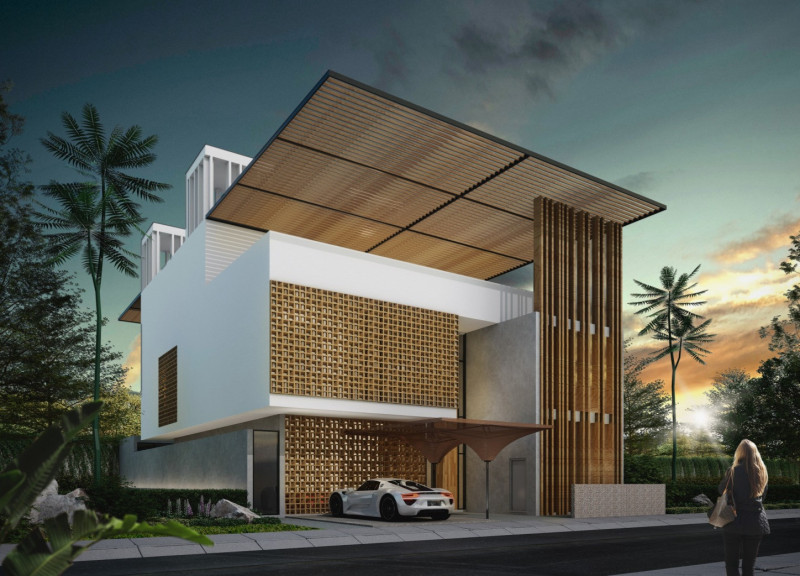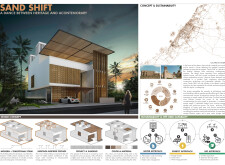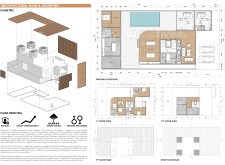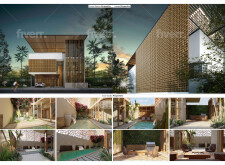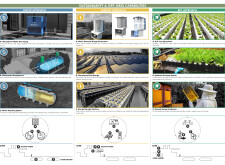5 key facts about this project
**Overview**
Located in Dubai, the residence known as "Sand Shift" integrates traditional Arabian design elements with contemporary architectural practices. The intention behind the design is to respect cultural heritage while addressing modern sustainability needs. This project reflects a contextual understanding of the desert environment, with an emphasis on creating a living space that merges aesthetic appeal and ecological responsibility.
**Spatial and Functional Design**
The layout of "Sand Shift" is characterized by a sophisticated interplay of open and private spaces, allowing for both communal gatherings and intimate retreats. The architectural form draws inspiration from traditional Gulf styles while incorporating modern features; this results in a balanced silhouette that promotes a fluid interaction between the interior and the exterior. Key design elements, such as the heritage-inspired roof that features wind turbines and water-harvesting technologies, exemplify a commitment to functionality and aesthetic integrity. The strategic positioning of wooden facades enhances natural ventilation and provides essential shading, while carefully placed openings ensure privacy without sacrificing natural light.
**Sustainable Strategies**
The project underscores a robust approach to sustainability, incorporating various technologies to minimize its environmental impact. Atmospheric water harvesting systems allow for the collection of potable water from humidity, complemented by advanced wastewater management solutions for non-potable uses. Energy efficiency is prioritized through the installation of solar panels and wind turbines, significantly reducing reliance on external energy sources. Innovative agriculture techniques, including soil-less farming and symbiotic systems, not only optimize space but also promote biodiversity. The thoughtful selection of materials, such as locally sourced wood, durable concrete, and transparent glass, further supports the project's sustainable ethos while enhancing its architectural expression.


